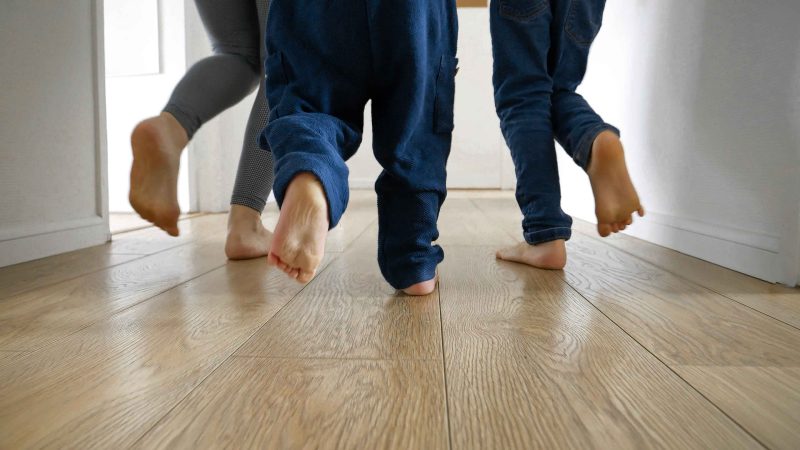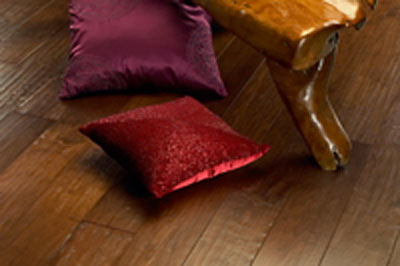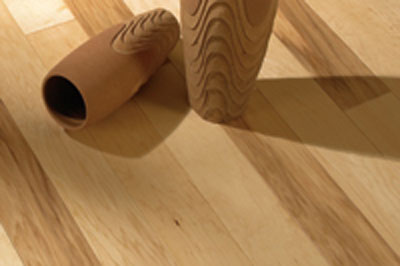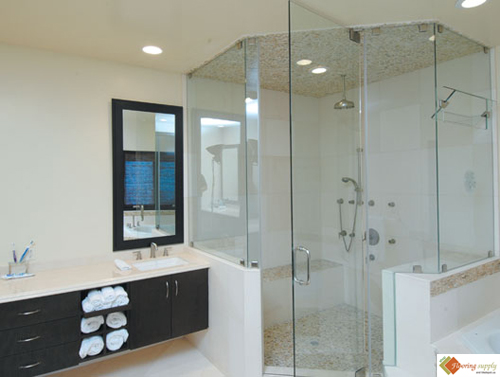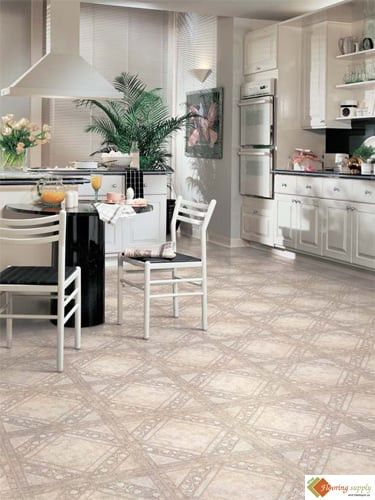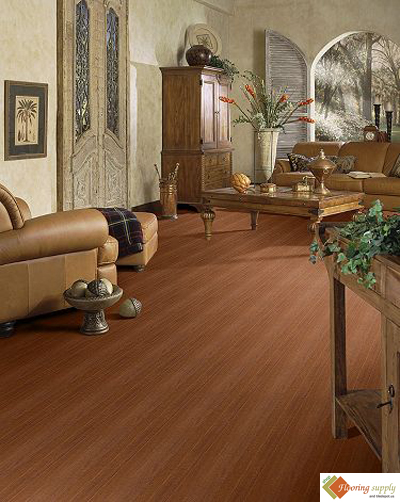Laminate flooring is popular due to its durability, sleek appearance, and easy maintenance. However, knowing how to clean laminate floors properly is essential for keeping them in top condition without causing damage. Whether you’re dealing with dust, dirt, or tough stains, using the right techniques and products will ensure your floors stay pristine. This guide will walk you through effective and safe methods to clean laminate floors, ensuring long-lasting beauty and performance.

1. Sweep and Dry Mop Regularly
Dirt, dust, and debris can act like sandpaper on laminate floors, gradually causing scratches and wear over time. To prevent this, regular sweeping is crucial. Use a soft-bristled broom or, even better, a dry mop equipped with a microfiber cloth. Microfiber is ideal because it traps dust and small particles without scratching the surface. Regularly sweeping your floors, especially in high-traffic areas, will prevent debris buildup that could otherwise damage your laminate.
For those who prefer a vacuum, ensure you use one designed for hard floors or with a setting that avoids the use of a beater bar, as this can scratch the laminate. This initial cleaning step prepares the floor for deeper cleaning without risking damage from particles being dragged across the surface.

2. Avoid Excess Water
One of the most important things to remember when cleaning laminate flooring is that excess water is its enemy. Unlike some types of wood or tile flooring, laminate is not designed to withstand large amounts of water. Too much moisture can seep between the planks and cause them to warp, buckle, or swell over time, leading to costly repairs.
To avoid this, always use a slightly damp mop. After sweeping, lightly dampen the mop with a laminate-friendly solution or water. A damp mop removes surface dirt and stains while ensuring the flooring is not saturated. After mopping, it’s essential to go over the floor with a dry mop or cloth to pick up any excess moisture. This keeps the floor clean while preventing damage from prolonged contact with water.

3. Use the Right Laminate Floor Cleaner
Using the right cleaning products is essential to maintaining the beauty of your laminate flooring. While there are many commercial laminate floor cleaners available, you can also create an effective, budget-friendly solution at home. A mixture of white vinegar and water in equal parts is a great option. Vinegar is a natural cleaner that effectively cuts through grime and kills bacteria without leaving behind any streaks or residue.
If you prefer store-bought options, look for a cleaner specifically designed for laminate flooring. Avoid using products that contain bleach, ammonia, or harsh chemicals, as they can strip the protective coating on your laminate. When using a cleaner, spray it onto the mop or cloth rather than directly onto the floor to control the amount of moisture.

4. Tackle Stubborn Stains with Rubbing Alcohol
For more difficult stains from laminate floors, such as paint, ink, or marker, rubbing alcohol is your best bet. It evaporates quickly, reducing the risk of moisture damage to the laminate. Simply apply a small amount of rubbing alcohol to a soft cloth and gently rub the stained area.
Be careful not to scrub too aggressively, as this could scratch the surface. A gentle rubbing motion should be sufficient to lift the stain. Once the stain is gone, wipe the area with a slightly damp cloth to remove any residue. This method works well for isolated spots and avoids the need for heavier, chemical-based cleaners.

5. Use Dish Soap for Grease and Oil Stains
Grease and oil can sometimes end up on your floors, especially in areas like the kitchen. Dish soap, known for cutting through grease, can effectively solve these types of stains. Add a few drops of dish soap to warm water and dip a clean cloth or slightly damp mop into the solution. Gently clean the affected area until the grease or oil is removed.

6. Prevent Scratches
Preventing scratches on your laminate wood floors is key to their longevity. Avoid using steel wool or other abrasive materials, as they can scratch the surface. Instead, opt for a microfiber cloth or soft mop head for gentle cleaning. Place rugs in high-traffic areas and attach furniture pads to the legs of chairs and tables to further protect your floors.

7. Removing Scuffs and Heel Marks
Scuffs and marks left by shoes can be a nuisance. A microfiber cloth and a little elbow grease can usually remove these, but for more persistent marks, try using a pencil eraser or a small amount of rubbing alcohol. Gently rub the mark until it lifts away.

8. Avoid Harsh Chemicals
Avoid using harsh chemicals like bleach or ammonia when cleaning laminate floors, as they can damage the protective layer and dull the surface over time. Although strong cleaners may seem effective for tough stains, they pose a risk to your floor’s longevity. Instead, opt for gentler solutions such as white vinegar mixed with water or a laminate floor cleaner specifically designed for this type of flooring. These options are safer for both the laminate and the environment, ensuring that your floors remain clean without causing long-term damage. Always prioritize mild, non-abrasive cleaners for the best results.

9. Maintain Your Mop
A clean mop head is essential for effective cleaning. If your mop head is dirty or overly wet, it can leave streaks on your floor. After each cleaning session, rinse and dry your mop head thoroughly, and replace it regularly to ensure it continues to clean effectively.

10. Handling Pet Messes
Pets, from accidents to muddy paws, can sometimes leave a mess on your floors. A quick solution of dish soap and water can help clean up any messes without harming your laminate. Afterward, use a dry cloth to avoid any lingering moisture.
Bonus Tips
Avoid Scratches from Furniture
Furniture legs can cause damage if they’re not protected. To avoid scratching your laminate, place protective pads on the bottom of furniture legs. This is especially important for chairs and tables that get moved frequently.
Also, avoid overly damp mops to keep your laminate floors shining, as they can leave streaks. Always finish by wiping the floor with a dry mop or a clean microfiber cloth to ensure it’s completely dry.
